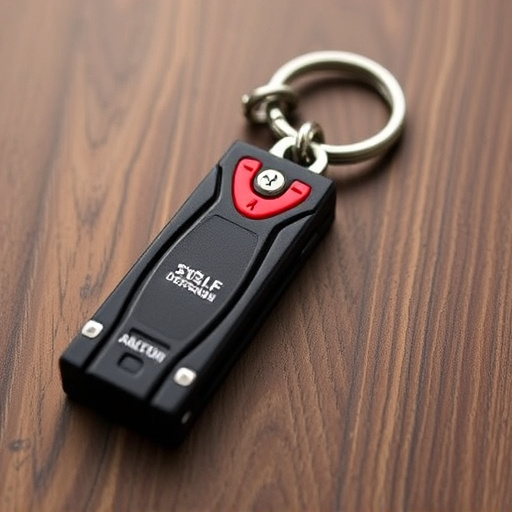The legal status of self-defense keychains in the United States varies greatly from state to state, with regulations shaped by each region's interpretation of personal safety. "Self Defense Keychain Laws by State" provides a guide to these diverse rules, ranging from strict prohibitions to lenient policies, based on public safety concerns, potential misuse, and individual rights. Understanding these laws is crucial for citizens aiming to legally carry self-defense keychains while engaging in responsible self-defense practices, as they differ significantly across states.
“Uncover the legal landscape surrounding self-defense keychains with our comprehensive guide. Navigating ‘Self Defense Keychain Laws by State’ is essential for responsible citizens aiming to protect themselves. We explore state-specific regulations, shedding light on what’s permitted and prohibited. From understanding the legislation to safety considerations, this article equips you with knowledge. Discover exceptions, limitations, and crucial insights into carrying a self-defense keychain legally. Empower yourself with informed decisions.”
- Understanding Self-Defense Keychain Legislation
- State-by-State Legal Requirements
- Exceptions and Limitations
- Safety Considerations for Carrying a Self-Defense Keychain
Understanding Self-Defense Keychain Legislation
The legal landscape surrounding self-defense keychains varies significantly from state to state, reflecting diverse interpretations and concerns regarding personal safety and security. Understanding Self-Defense Keychain Laws by State is crucial for citizens seeking to legally carry such devices for protection. Each state has its own set of regulations dictating the type of keychain allowed, permitted uses, and restrictions on distribution and possession.
These laws consider factors like public safety, potential misuse, and individual rights. Some states explicitly forbid self-defense keychains due to their perception as a potential hazard or as a tool for excessive force. Conversely, other states recognize the benefits of such devices in deterring crime and enabling individuals to protect themselves in emergencies, leading to less stringent regulations. Knowing and adhering to these state-specific Self Defense Keychain Laws is essential to ensure compliance with local statutes and promote responsible self-defense practices.
State-by-State Legal Requirements
The legal landscape surrounding self-defense keychains varies significantly from state to state in the US, with each having its own set of regulations and restrictions. Understanding these self-defense keychain laws by state is crucial for citizens looking to protect themselves legally. Some states allow the possession of self-defense keychains without a permit, while others mandate specific requirements, such as training or registration.
For instance, Texas permits individuals 18 years or older to carry a self-defense keychain without a license, whereas California requires a permit for any type of self-defense weapon, including keychains. New York State has a unique approach, allowing the use of personal protection devices (PPDs), which include keychains, but subjects them to specific conditions and restrictions. These variations highlight the importance of researching local laws before acquiring a self-defense keychain to ensure compliance and avoid potential legal repercussions.
Exceptions and Limitations
When it comes to self-defense keychains, laws vary greatly from state to state in the US. While many states allow the possession of small, non-lethal self-defense tools like keychains for personal protection, there are exceptions and limitations to consider. Some states have specific restrictions on the type of device allowed, its size or force it can exert. For instance, a state might permit only pepper spray keychains or limit the amount of pressure an electric keychain can emit.
Additionally, certain locations, like schools, public transportation hubs, or places of worship, may have additional regulations prohibiting or restricting self-defense devices. Some states also differentiate between personal use and public display, with more stringent rules for carrying visible self-defense tools in public spaces. Understanding these nuances is crucial when navigating Self Defense Keychain Laws by State to ensure compliance with local regulations.
Safety Considerations for Carrying a Self-Defense Keychain
When considering carrying a self-defense keychain, it’s crucial to understand the safety implications and legal requirements within your state. Different states have varying laws regarding self-defense tools, including keychains designed for protection. These laws vary widely, affecting everything from age restrictions to permissible methods of defense.
Before opting for a self-defense keychain, research your state’s specific regulations. Some states allow the carrying of certain types of keychains as personal protection devices without a permit, while others may require registration or a concealed carry license. Understanding these legal frameworks ensures you’re compliant and reduces potential risks, both legal and physical, associated with carrying such a device.
When it comes to self-defense keychains, understanding your state’s specific laws is crucial. Each jurisdiction has its own set of regulations regarding these compact defense tools, known as Self Defense Keychain Laws by State. By staying informed about the legal requirements, exceptions, and safety considerations outlined in this article, you can ensure responsible carrying and usage, promoting both personal safety and compliance with local legislation.
